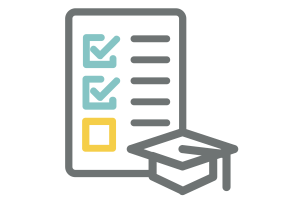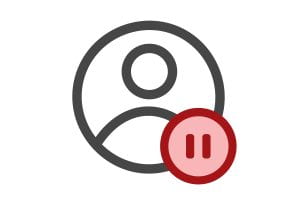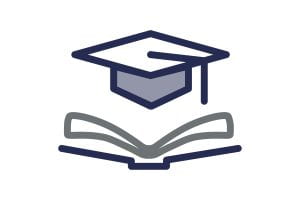Academic Foundations represent core components within Workday Student that support all other student functional areas, including Curriculum, Advising, Records, Student Financials and Financial Aid.
Included under the Academic Foundations umbrella (also known as “Student Core”) are WashU’s academic structure, programs of study and credentials, academic periods and calendars, dates, student eligibility rules, and more. Student records are another key driver in Workday supporting student registration, academic records and institutional academic policies.
WashU will use Workday Student for the following Academic Foundations/Records-related activities:
- Defining and maintaining the academic organizational structure (academic units) for schools, colleges and departments
- Configuring programs of study
- Maintaining academic records
- Maintaining academic calendars
- Defining rules and processes for enrollment, grading, and graduation
Upcoming webinars
Join us for the Workday Student Sneak Peeks series to get familiar with the new system and what’s changing, including how records are organized.
Key terms
In Workday, a student record is the complete picture of a student’s academic relationship with the university and may comprise one or more academic records. An academic record is a collection of a student’s academic activities (GPA, registrations, academic history). In Workday, students may have a single or multiple academic record(s) that each include one or more programs of study. The goal of multiple academic records is to support scenarios where students have more than one educational pursuit (i.e., degree).
Key changes
Automated processes
Currently WashU doesn’t have a single source of student information that includes academic, demographic, admissions and co-curricular data, which creates manual work for activities like degree audit. Moving to a system with more automated processes will improve data accuracy; enhance long-term compliance, efficiency and reporting capabilities; and lighten workloads to free time for other activities.
Examples of processes that will be automated in Workday include:
- Course registration
- Tuition assignment
- Degree requirements/audit
- Graduation checkout
- Ordering transcripts
Academic calendars
WashU’s current academic calendar structure makes it difficult to ensure that all policies, federal financial aid, and reporting requirements, as well as opportunities like cross-program registration, are adequately and consistently supported. Workday has significantly more functionality related to registration and other date controls, which allows for a more simplified academic calendar structure that will enhance the experience for faculty, students and staff; reduce administrative burden; and minimize risk.
Academic divisions
Today academic divisions have many uses across the university for organizing our people and related data, processes and policies. In addition to driving day-to-day operations in the schools and academic units, academic divisions are a key data point for many reports and system integrations.
In Workday Student, each academic division will be replaced by either an academic unit (AU) and corresponding academic level or by a program of study.
Student personal information
Prior to Workday, staff, faculty and students at WashU existed in multiple systems (i.e., HRMS, SIS, etc.), and different data was attributed to the person’s record depending on which “hat” they were wearing (e.g., student, staff or student worker). However, people in Workday will have one profile and a single, unified set of personal data.
Student and academic record statuses
In SIS, we commonly use the phrase “current student.” In Workday, our definitions will be more nuanced.
- For data conversion purposes, students will be “active” or “historical” based on whether they are enrolled in courses when we go live or in the three years prior to go-live.
- Once we’re live with Workday Student, students may have active or inactive academic records.

Consistent grading categories
Today, most undergraduate and graduate students can select from three or four primary grading options when registering for courses: credit (letter grade), pass/fail and audit. But schools use a variety of grades within these options.
With the transition to Workday Student, we will have a more consistent set of grade options (called grading bases) and grade elements, which are the specific grade values (A, B+, etc.) that can be assigned. This change will simplify grading for instructors and create a more equitable experience, particularly for students studying across schools.
Aligned GPA
Workday will allow for improved clarity in GPAs based on programs of study and grading basis rules that can be configured in the system. Once Workday goes live, students will earn credit toward their cumulative unit total for any course in which they are allowed to register for credit. Students also will earn quality points toward their GPA for any course in which they are allowed to register for quality graded credit (excepting properly recorded repeats).
A transcripted course will then appear in a clear and consistent way regardless of which school a student starts in or whether they switch schools during their academic career. This will make for a more transparent experience for students, their advisors and external transcript reviewers.
Systems
SIS web applications WebFAC, WebAdvising and Egrades, used by faculty for advising support and entering and approving final grades, and WebSTAC, used by students for registering for courses and accessing their student record, will be replaced by Workday Student. Workday will connect with other systems to exchange data related to rosters, classroom assignments, course materials, instructor evaluations and updating the Bulletin.
Reporting
In general, we will be able to view and report on the same types of curriculum and registration data in Workday Student as we do in our current systems. The primary difference in Workday is the consolidation of data in one system, which should reduce the need to combine data from multiple systems using external tools like Excel, Access or other databases. The move to a single student administrative system also should eliminate certain audit reports currently used to ensure that data “matches” in multiple systems, e.g., in SIS and Workday HCM.
Contacts
Questions?
Please contact Andrea Androuais (change manager for Academic Foundations and Admissions) or Joe Rehder (change manager for Records and Registration), who serve as liaisons between the WashU community and the project.
Alternatively, you can submit questions or comments through this form.
Project team members
- Trevor Bilhorn, Academic Foundations and Admissions functional lead
- Andrew Hogan, Academic Foundations and Admissions principal business analyst
- Craig Grzechowiak, Academic Foundations and Admissions support business analyst
- Andrea Androuais, Academic Foundations and Admissions change manager
- Tiffany Saffell, Academic Foundations and Admissions instructional designer
- John Moore, Academic Foundations and Admissions technical writer
- Marissa Kaltwasser, Records and Registration functional lead
- Eddie Anderson, Records and Registration principal business analyst
- Kelly Johnson, Records and Registration support business analyst
- Joe Rehder, Records and Registration change manager
- Amanda Ringwald, Records and Registration instructional designer
- Daria Carson-Dussán, Records and Registration technical writer
- Amy Whittier, communications specialist
Campus team members
View the Sunrise campus teams roster to see who’s on the Academic Foundations & Records campus team from your school or unit. Campus team members provide input on how Workday Student is configured and insight into how changes will affect their area.
Learn more about Sunrise campus teams
Related Resources
Current state assessments
Sunrise project work related to academic foundations and records is informed by current state assessments developed during the Discovery Phase:
- Academic Foundations current state assessment
- Academic Records & Student Data current state assessment
- Curriculum & Registration current state assessment
Workday 101
Explore educational material on the Workday 101 web page to learn more about key topics related to academic foundations and records, including academic units, programs of study, business processes, effective dating and more.
Articles
These articles are from past issues of Sunrise Spotlight, the project’s newsletter.
View all articles or sign up to receive future issues




